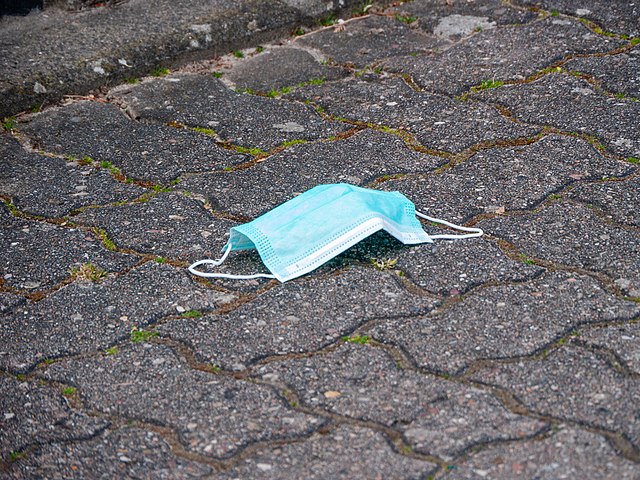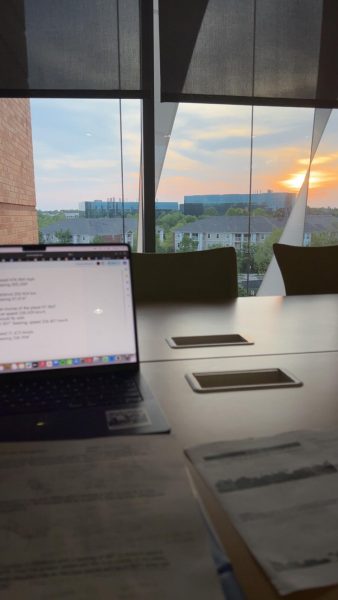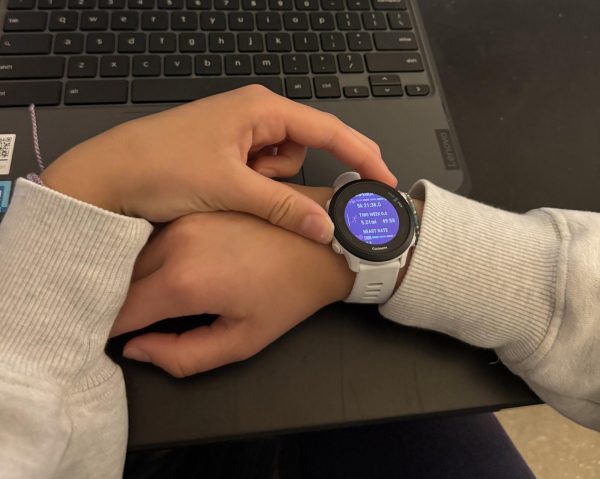Masks remain important
Photo used with permission from Wikimedia Commons
In with the old, out with the new? Masks became expected and are now being phased out. For science and for our society, this is not the right choice to a better future.
As the nation opens up in a post-Covid world, so too should our minds regarding the policies introduced during that era. Through the mayhem and danger that surrounded the pandemic, it was proven that appropriate masks reduce the spread of virulent diseases, such as COVID-19 and the common cold.
Now that businesses, schools and cities have lifted mandates regarding masks, most people are discarding them in an attempt to return to normalcy. Common arguments are that the pandemic has passed, they are uncomfortable and irritating and living in constant fear of disease is no way to live. Though some of these may be justified, we should not exit this pandemic era having not learned valuable lessons.
Though hard to hear, the pandemic is not over yet. But it was correctly noted that living ever cautious is not truly living. To wear a mask in public, every time you go out, is impractical at best. So then, what should we take away from the years of quarantine, that is both safe and non-restricting? According to an article by LiveScience staff, surgical masks can be “your best protection against a cold or the flu.”
The article, written in 2009 before the pandemic, still holds true. The difference is that now, viruses and colds have entered the forefront of causes of death due to COVID-19. With the knowledge that we possess, and the motivation to use it, now is the time to introduce beneficial changes to our society.
Masks should be worn, both as a personal choice, and a common courtesy. When you are sick, wearing a mask protects others from getting the cold as well. The world doesn’t stop, in fact it gets more difficult to progress through when we get sick, but there’s no need to unintentionally put others around you through that same struggle. As stated by the 2009 article, by wearing a mask when sick, others face less than half the normal risk of getting sick as well.
On the flip side, if you know a family member or friend is sick, you can wear a mask to protect yourself and still be with them. This same principle should be applied when going on trips to other countries, where unfamiliar viruses swirl around. The locals may be immune due to living with them for years, but you are not. You can protect yourself by wearing a mask on foreign flights and in other countries.
If this lesson is what we take away from the quarantine years, then it may prevent illnesses from reaching the same severity in the future. In addition, it’s beneficial for society all the time, to introduce this idea of inherent respect for others’ health. Fewer people will have to push through colds, those with weaker immune systems will live safer lives and general health and happiness will improve. This change can begin with just one person, one community, changing the world with compassion, one at a time.
Your donation will support the student journalists of Thomas S. Wootton High School. Your contribution will allow us to purchase equipment and cover our annual website hosting costs.
Benjamin is a 2023 graduate.







